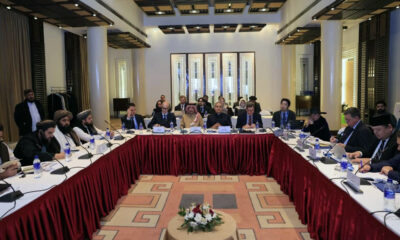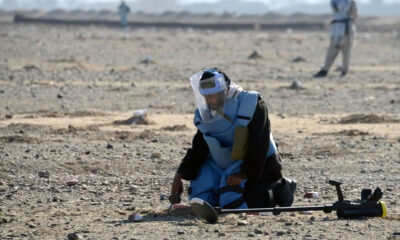World
Iran top diplomat says U.S. must show goodwill gesture for direct talks

Iran is ready to swap prisoners with the United States, Iran’s foreign minister said on Saturday, adding that talks to revive a 2015 nuclear deal could succeed “at the earliest possible time” if the United States makes the necessary political decisions, Reuters reported.
Reuters reported on Thursday that a U.S.-Iranian deal is taking shape in Vienna after months of indirect talks to revive the nuclear pact. The draft text of the agreement alluded to other measures, including unfreezing billions of Iranian funds in South Korean banks and the release of Western prisoners held in Iran, Reuters reported.
“We believe prisoner swap is a humanitarian issue … unrelated to the nuclear accord … We can do it immediately,” Hossein Amirabdollahian told a panel at the Munich Security Conference.
Robert Malley, who leads the indirect U.S. talks with Iran in Vienna, has suggested that securing the nuclear pact is unlikely unless Tehran releases four U.S. citizens Washington says it is holding hostage.
According to Reuters in recent years, Iran’s elite Revolutionary Guards have arrested dozens of dual nationals and foreigners, mostly on espionage and security-related charges. Tehran denies taking prisoners to gain diplomatic leverage, as claimed by rights activists.
In the past, Iran has called for the release of over a dozen Iranians in the United States, including seven Iranian-American dual nationals, two Iranians with permanent U.S. residency and four Iranian citizens with no legal status in the United States.
Most of them have been jailed for violating U.S. sanctions against Iran, Reuters reported.
When asked whether Tehran was ready to hold direct talks with Washington, Amirabdollahian did not rule this out.
“They have asked for direct meetings … If Washington’s intentions are genuine, they should take some tangible steps of goodwill on the ground such as freeing Iran’s frozen assets abroad,” he said.
The 2015 deal between Iran and major powers limited Iran’s enrichment of uranium to make it harder for Tehran to develop material for nuclear weapons, in return for a lifting of international sanctions against Tehran, read the report.
But it has eroded since 2018 when then-President Donald Trump withdrew the United States and reimposed far-reaching sanctions on Iran.
Tehran has since breached the deal’s limits and gone well beyond, rebuilding stockpiles of enriched uranium, refining it to higher fissile purity and installing advanced centrifuges to speed up output.
Both Tehran and Washington have described the nuclear talks as constructive since last week, when the negotiations resumed after a 10-day pause. However, they have also said that tough political decisions needed to be taken to overcome the remaining differences.
“I would like to emphasize here that we are ready to achieve a good deal, at the earliest possible time, if the other side makes the needed political decision,” Amirabdollahian said.
“If the talks fail in Vienna, Western powers will be responsible for the failure because we want a good deal.”
After 10 months of talks, one of the remaining differences is Iran’s demand for a U.S. guarantee of no more sanctions or other punitive steps in future, and also how and when to restore verifiable restrictions on Iran’s nuclear activity, Reuters reported.
A senior Iranian official told Reuters that Iran has shown flexibility by agreeing to “inherent guarantees” as Washington says it is impossible for President Joe Biden to provide the legal assurances Iran has demanded.
Amirabdollahian said a joint statement by the heads of the U.S. Senate and House of Representatives to back the nuclear deal would suffice as a “political guarantee”.
World
US shoots down Iranian drone approaching aircraft carrier, official says
Iran’s Tasnim news agency said connection had been lost with a drone in international waters, but the reason was unknown.

The U.S. military on Tuesday shot down an Iranian drone that “aggressively” approached the Abraham Lincoln aircraft carrier in the Arabian Sea, the U.S. military said, in an incident first reported by Reuters.
The incident came as diplomats sought to arrange nuclear talks between Iran and the United States, and U.S. President Donald Trump warned that with U.S. warships heading toward Iran, “bad things” would probably happen if a deal could not be reached.
Oil futures prices rose more than $1 per barrel after news the drone was shot down.
The Iranian Shahed-139 drone was flying toward the carrier “with unclear intent” and was shot down by an F-35 U.S. fighter jet, the U.S. military said.
“An F-35C fighter jet from Abraham Lincoln shot down the Iranian drone in self-defense and to protect the aircraft carrier and personnel on board,” said Navy Captain Tim Hawkins, a spokesperson at the U.S. military’s Central Command.
Iran’s U.N. mission declined to comment.
Iran’s Tasnim news agency said connection had been lost with a drone in international waters, but the reason was unknown.
No American service members were harmed during the incident and no U.S. equipment was damaged, he added.
The Lincoln carrier strike group is the most visible part of a U.S. military buildup in the Middle East following a violent crackdown against anti-government demonstrations last month, the deadliest domestic unrest in Iran since its 1979 revolution.
Trump, who stopped short of carrying out threats to intervene during the crackdown, has since demanded Tehran make nuclear concessions and sent a flotilla to its coast. He said last week Iran was “seriously talking,” while Tehran’s top security official, Ali Larijani, said arrangements for negotiations were under way.
In a separate incident on Tuesday in the Strait of Hormuz, just hours after the drone shootdown, Iran’s Islamic Revolutionary Guard Corps forces harassed a U.S.-flagged, U.S.-crewed merchant vessel, according to the U.S. military.
“Two IRGC boats and an Iranian Mohajer drone approached M/V Stena Imperative at high speeds and threatened to board and seize the tanker,” Hawkins said.
Maritime risk management group Vanguard said the Iranian boats ordered the tanker to stop its engine and prepare to be boarded. Instead, the tanker sped up and continued its voyage.
Hawkins said a U.S. Navy warship, the McFaul, was operating in the area and escorted the Stena Imperative, Reuters reported.
“The situation de-escalated as a result, and the U.S.-flagged tanker is proceeding safely,” Hawkins added.
World
Top US, Israeli generals meet at Pentagon amid soaring Iran tensions
The officials did not offer details about the closed-door discussions between U.S. General Dan Caine, the chairman of the Joint Chiefs of Staff, and Eyal Zamir, the Israeli armed forces chief of staff.

The top U.S. and Israeli generals held talks at the Pentagon on Friday amid soaring tensions with Iran, two U.S. officials told Reuters on Sunday, speaking on condition of anonymity, Reuters reported.
The officials did not offer details about the closed-door discussions between U.S. General Dan Caine, the chairman of the Joint Chiefs of Staff, and Eyal Zamir, the Israeli armed forces chief of staff. The meeting has not been previously reported.
The United States has ramped up its naval presence and hiked its air defences in the Middle East after President Donald Trump repeatedly threatened Iran, trying to pressure it to the negotiating table. Iran’s leadership warned on Sunday of a regional conflict if the U.S. were to attack it, read the report.
Israeli Defence Minister Israel Katz on Sunday met with Zamir after his talks in Washington, Katz’s office said, to review the situation in the region and the Israeli military’s “operational readiness for any possible scenario.”
World
Israeli attacks kill 31 Palestinians in Gaza, including children
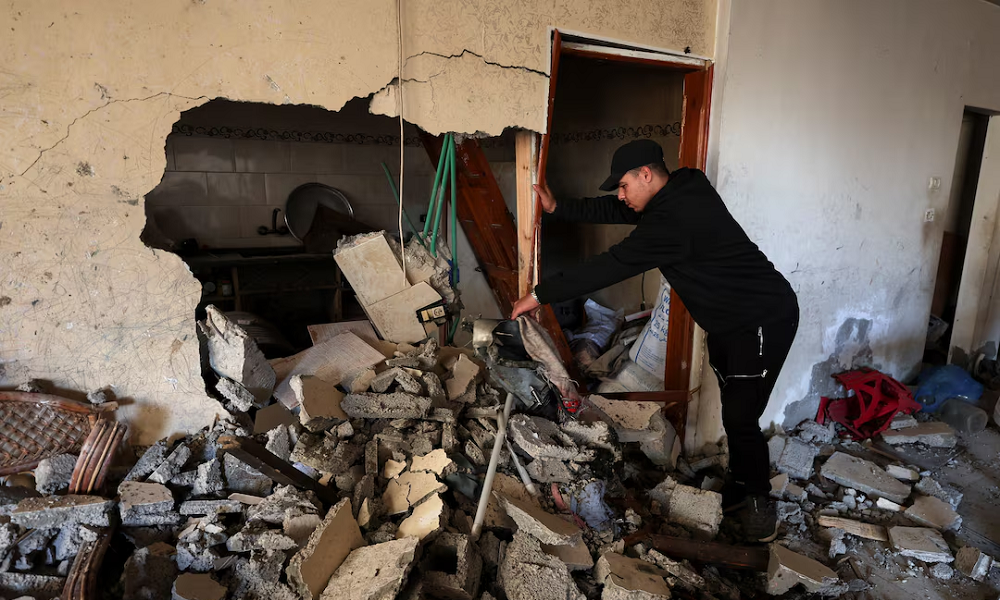
At least 31 Palestinians, including six children, were killed in Israeli attacks on Gaza City and Khan Younis since early Saturday, according to medical sources cited by Al Jazeera.
The strikes came a day before Israel is scheduled to reopen the Rafah crossing between Gaza and Egypt on Sunday, marking the first reopening of the border crossing since May 2024.
Gaza’s Government Media Office said that more than 500 Palestinians have been killed by Israeli forces since a United States-brokered ceasefire came into effect on October 10.
According to local health authorities, Israel’s military campaign in Gaza has killed at least 71,769 Palestinians and wounded 171,483 others since it began in October 2023. In Israel, at least 1,139 people were killed during the Hamas-led attacks on October 7, 2023, with approximately 250 people taken captive.
-

 Sport4 days ago
Sport4 days agoAFC Futsal Asian Cup: Afghanistan to face Iran in crucial Group D clash
-

 Sport5 days ago
Sport5 days agoT20 World Cup 2026: Afghanistan national cricket team arrives in India
-

 Sport3 days ago
Sport3 days agoAFC Futsal Asian Cup 2026: Final eight confirmed
-
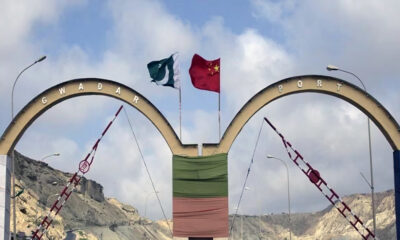
 Business5 days ago
Business5 days agoPakistan, China plan to extend CPEC to Afghanistan, revive trilateral framework
-
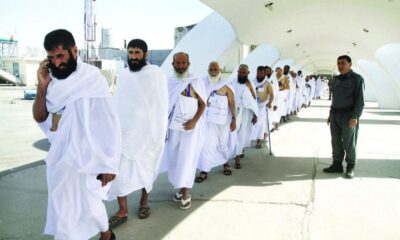
 Latest News4 days ago
Latest News4 days agoAfghanistan granted 30,000 Hajj quota for 2026
-

 Sport3 days ago
Sport3 days agoAfghanistan in new kit for T20 World Cup warm-up against Scotland
-

 Sport3 days ago
Sport3 days agoIran see off spirited Afghanistan to finish top of Group D
-

 Sport2 days ago
Sport2 days agoJapan trumps Afghanistan 6-0 in AFC Futsal Asian Cup quarter-final




